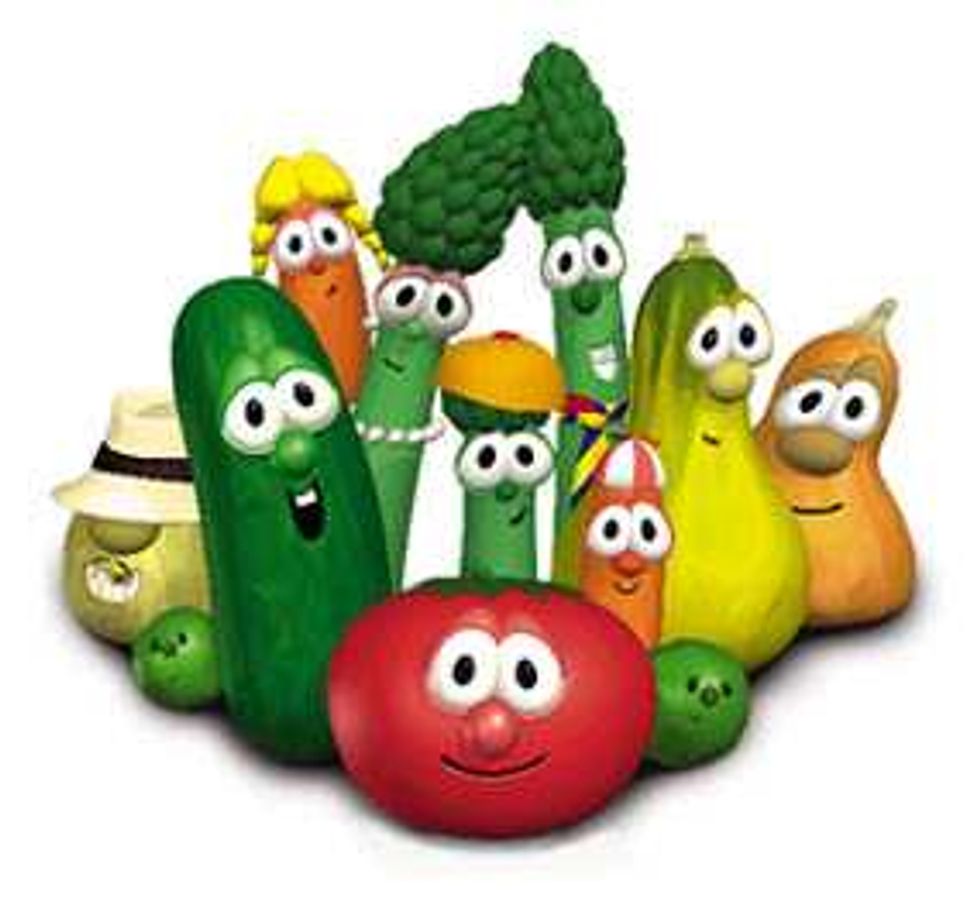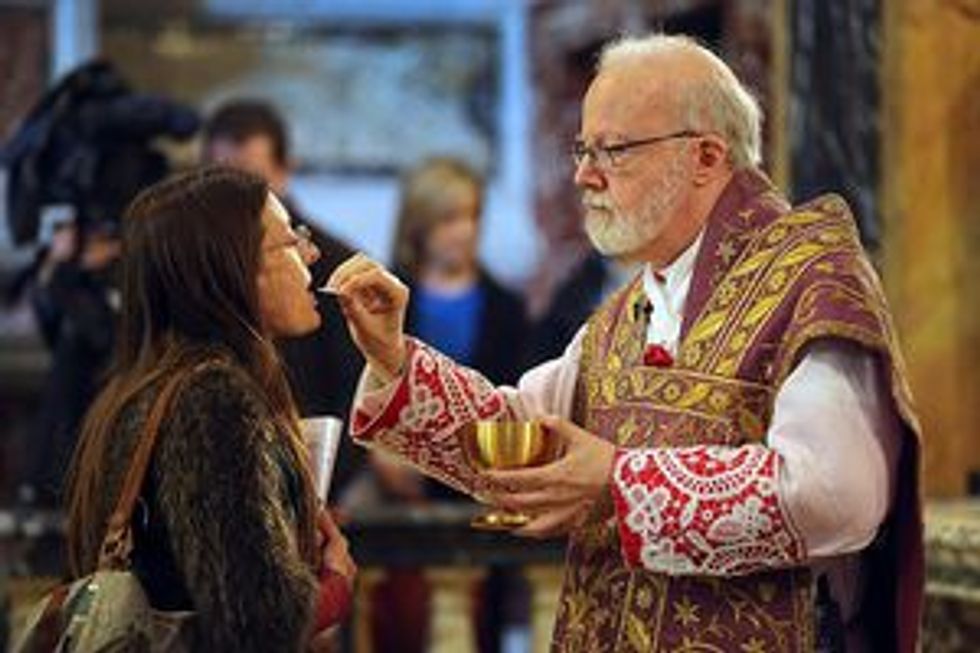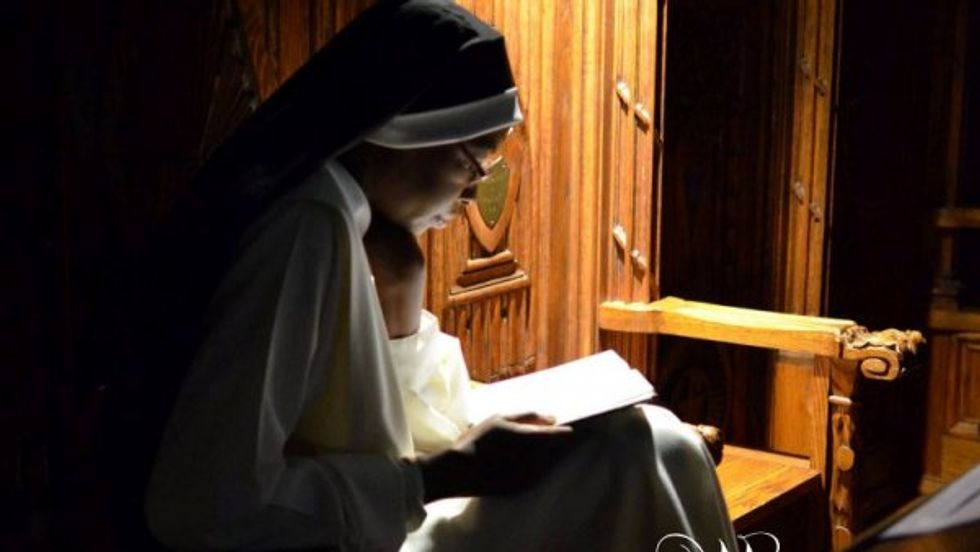Though I was raised in a Christian home, I was somehow missed nigh entirely by what I'm going to call Christian Culture. The celebrities, the customs, the radio stations, and the popular music all were mostly absent from my life. I even went to a Christian elementary school, and somehow didn't pick up on any of it. (This may be because I am relatively oblivious an inexcusable amount of the time) However, last year I began attending a Christian college, Houghton College to be exact, which is a Wesleyan school (this will become relevant later). Without further ado, here are 5 things that I was not at all expecting but found anyway.
1. Veggietales gets people HYPED
If you have been raised in Christian Evangelical culture, you will likely have encountered the popular children’s series, Veggietales. For those of you who haven’t, this series seeks to educate children on the values and events represented in the Bible, in a contemporary fashion, and with all characters being played by various vegetables. Except for Bob the Tomato, of course, who is technically a fruit. Any mention of an event or story told within Veggietales is an invitation for your peers to gasp and start singing the popular Silly Song “Where is My Hairbrush?” from a segment of the show called Silly Songs with Larry, the part of the show where Larry the Cucumber sings a Silly Song. If you want to immediately win over 78% of your audience at a Christian college, merely mention Veggietales and they will be yours.
2. Joel Olsteen and Billy Graham are household names
Before coming to Houghton, I had only vaguely encountered this subculture of Christian Celebrity Speakers. When I was in about 6th grade, I attended a church where Joel Olsteen came to speak, but I was always under the impression that he was just some friend of my pastor, not a widely-renowned Christian speaker. Of course, now he is not only famous but rather infamous, because his theology is widely questioned. I didn’t even realize that was a thing you could do, question someone’s popular theology. Billy Graham was also one of these Christian Celebrity Speakers, and apparently it’s his fault that the whole purity movement got started. This is a whole subculture that completely missed me, because my parents weren’t super into the whole Christian culture thing. Or maybe I was just oblivious. I would believe either theory.
3. There is actually so much more to denominations than you think
The list of churches I have attended is relatively short. One Baptist church, and three Non-Denominational churches. Little did I know, coming from this background, that it actually kind of matters what denomination you are. But also, it doesn’t really matter at all. For one thing, everyone is a Christian, and most of them are at least Protestants, at that. But then you have Wesleyans and Free Methodists and United Methodists and Lutherans (there are subgroups of them too), as well as Baptists and Calvinists and Presbyterians and Anglicans and who knows what else. All of them believe the same things, as in Jesus Christ was God’s Son and He died for our sins and rose again. However, there are very acute differences, like whether or not the Eucharist becomes the actual body and blood of Christ, what the Second Coming will look like, how Jesus was conceived, what music should be played in church, and nearly all of them have varying opinions on things like social justice and the LGBT+ community and alcohol. For me, this meant that the Bible could be interpreted many different ways and that most of them were not necessarily wrong, as long as they were true to the Scripture. It gives me hope to think that not all Christians think alike, and most of them disagree on many topics. This kind of diversity is good for the Church, I think. It keeps things interesting, at least.
4. Catholics are severely misunderstood by most Evangelicals
Maybe it’s because I didn’t really get the denominations thing. Maybe it’s because I really love Latin. Maybe it’s because Church History seems a lot more like some petty politics to me, on the outside, because I haven’t been deeply steeped in it from the beginning. Whatever it is, I really do not see why the Catholics get so much hate from Evangelicals. Maybe it’s just because we don’t like when people disagree with us. Granted, the Catholic Church has had its fair share of problems. But so has every church. During my first fall semester, my group in Cultural Anthropology did a study on how the Evangelical culture of Houghton affected the Catholic students, and the results were just so amazing to me. Most Catholic students we surveyed felt that their faith was criticized, misinterpreted, or otherwise looked down upon by students and even faculty. It is just astounding to me that a branch of the Church with such deep history and rich traditions is scorned and ignored in this way. I love hearing my Catholic friends tell me about their faith, and I love asking them questions because they too find it so fascinating and joyful to talk about. It was just strange to me that Catholics were viewed so differently by some Protestants.
5. A pseudo-monastic lifestyle can actually deepen your faith
I used to think that being a monk or a nun was an interesting choice, but not a very sensible one. What was the good in removing yourself from the world? Didn’t the repetitive prayers and churchy language get tiring and worn after a while? But since coming to school, and participating in some of the more liturgical practices, I am beginning to understand what spiritual discipline means. Most Evangelical churches can make it seem like the feeling of God, what you experience when you first convert, is when God is strongest in your life, and you must fight tooth and nail to maintain that holy feeling. But this is impossible, and it can be really hard for Christians who think this way to grow in their faith. Being in a remote area, rising early, and directing my first thoughts towards God in Scripture and Morning Prayer has introduced a new aspect to my faith I never considered before. Yes, the liturgy is repetitive, but that also means it is memorizable. The magic of this is that it comes to you when you least expect it. My favorite prayer which we do in the morning is the Wednesday one, coming from John Wesley:
Oh, that we may all receive of Christ’s fullness, grace upon grace.
Grace to pardon our sins and subdue our iniquities,
To justify our persons and to sanctify our souls.
And to complete that holy change, that renewal of our hearts,
Whereby we may be transformed into that blessed image wherein Thou didst create us. Amen.
This phrasing, this ‘grace upon grace’, always slips into my mind when I least expect it, when I am most wrestling with my faith and my thoughts. It reminds me that while we are supposed to try our best, human beings are not perfect and are not meant to be. To sum it up, a quote from C.S. Lewis’ Prince Caspian:
“You come of the Lord Adam and the Lady Eve," said Aslan. "And that is both honour enough to erect the head of the poorest beggar, and shame enough to bow the shoulders of the greatest emperor on earth. Be content.”
























